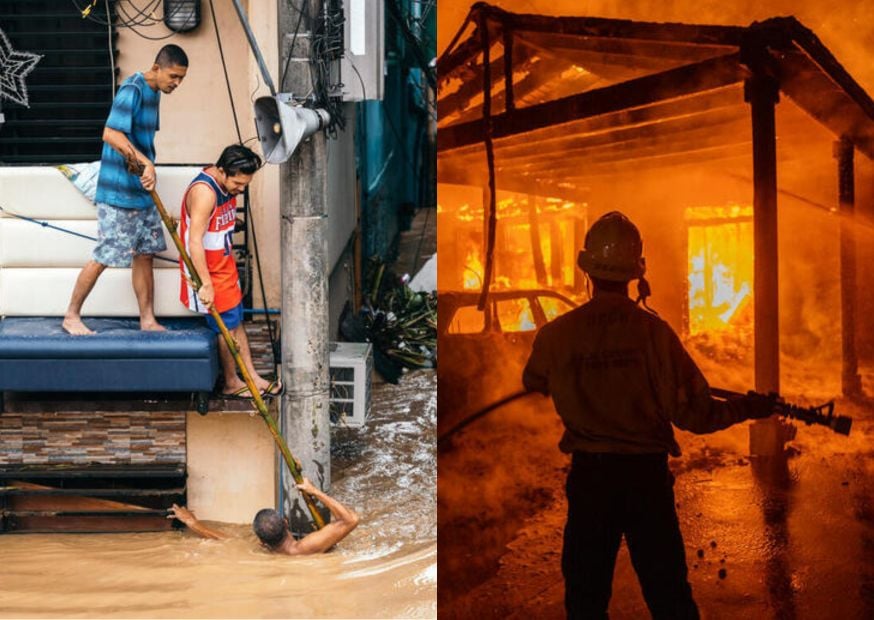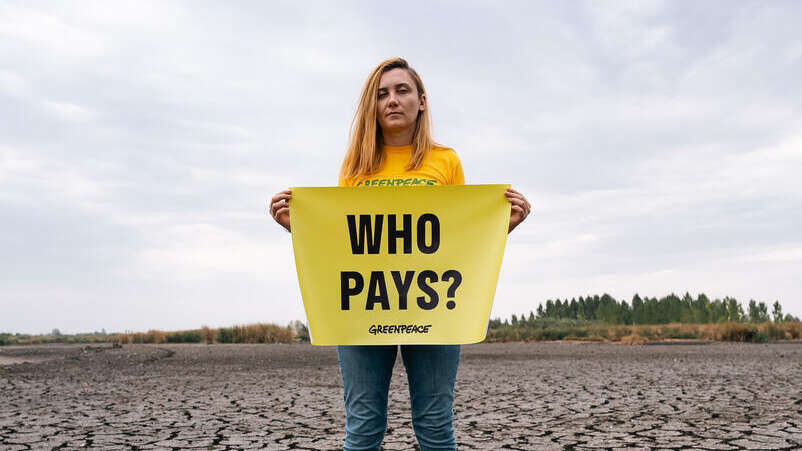From fires made worse by heatwaves and droughts, to floods and mudslides tied to increasingly severe storms, there is no doubt that the climate emergency is here — and everywhere. As the IPCC report made clear, the time for action to combat fossil fuel-driven climate change is now. To achieve the green and just future we need, we must work together to hold those responsible accountable.
At every step of its life cycle, plastic production accelerates climate change by releasing greenhouse gases and places vulnerable populations further at risk. Plastic comes from fossil fuels and the consumer goods companies pushing plastic on our communities from the United States to the Philippines are making the climate crisis worse. In addition to creating a global pollution problem, plastic also contributes to deteriorating health of people living near petrochemical facilities, and to injustices that disproportionately affect marginalized and low-income groups.
A report released by Greenpeace USA The Climate Emergency Unpacked: How Consumer Goods Companies are Fueling Big Oil’s Plastic Expansion, reveals how consumer goods companies like Coca-Cola, PepsiCo, and Nestlé are driving the expansion of plastic production and threatening the global climate and communities around the world.
To learn more about the global and local impacts of the plastic pollution crisis, we’ve checked in with Marian Ledesma of Greenpeace Philippines and Graham Forbes of Greenpeace USA.
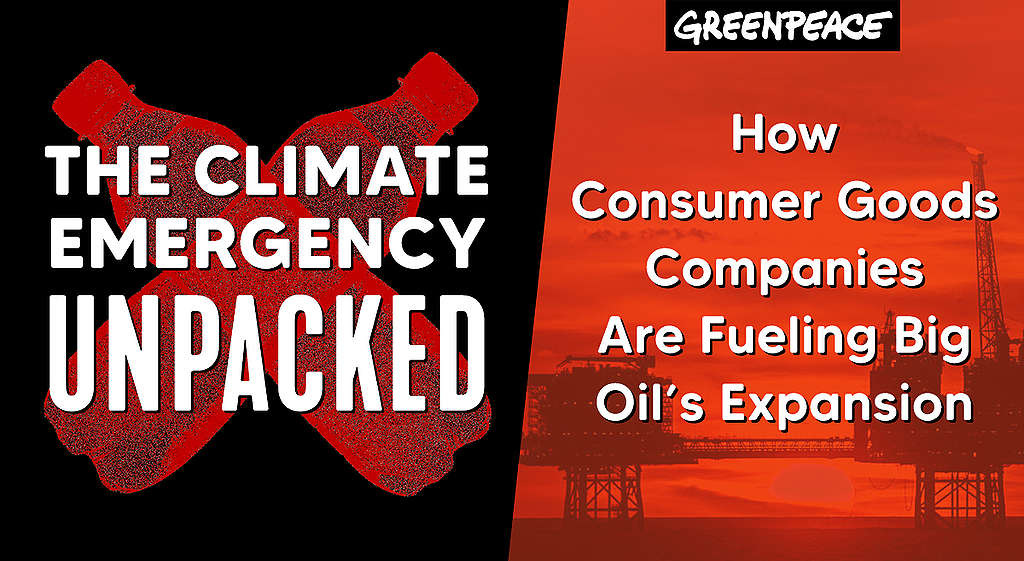
What’s happening in your community as it relates to plastic production, use and end of life?
Marian: In the Philippines, plastic use and production has grown steadily, producing more greenhouse gas emissions and plastic pollution in a region already severely impacted by the climate crisis.
Consumer goods companies keep releasing single use plastic sachets and smaller disposable packaging to capture low-income markets, displacing reuse systems and resourceful local packaging which were common in the past. All the while, these corporations ignore calls to make reusable alternatives or reuse systems available to consumers.
Online shopping, food delivery and the influx of imported waste are also adding to plastic waste, and companies are exploiting this to promote false solutions like failed recycling schemes and waste-to-energy initiatives. Instead of providing people-and-planet-centered solutions, corporations are lobbying to institutionalize technologies which compound plastic pollution’s impacts with more greenhouse gases and toxic emissions.
Graham: The climate emergency is being felt in every community in the United States, from fires and drought in the West to increasingly severe storms in the East. And the pain caused by this increasingly severe weather is not experienced evenly across the population with low-income and communities of color bearing the brunt of these impacts. Plastic comes from fossil fuels and is making the climate crisis worse.
The US has been found to be the largest per capita generators of single-use plastic waste in the world, second only to Australia, and a major producer of plastics and petrochemicals. The Irving, Texas headquarters for Exxon, the world’s largest producer of single-use plastic, is just a short-two hour flight from the Atlanta, Georgia headquarters for Coca-Cola, which uses nearly 3 millions tons of plastic a year, sending tens of billions of single-use plastic bottles across the globe, securing the company’s position as the biggest plastic polluter for 3 years running, according to global brand audits.
Despite abundantly clear evidence of the need to reduce plastic production and use to stem the plastic pollution crisis and prevent the worst effects of climate change, Exxon is reportedly planning to massively expand its plastic production capacity and Coke continues to defend its reliance on single-use plastic peddling the illusion that recycling can somehow capture its plastic that so often ends up polluting the natural environment. This is despite the fact they know that of all of the plastic waste ever produced only 9% has actually been recycled. The fossil fuel industry and the consumer goods sector are both working to preserve a broken system that maximizes corporate profits by externalizing environmental and social costs.
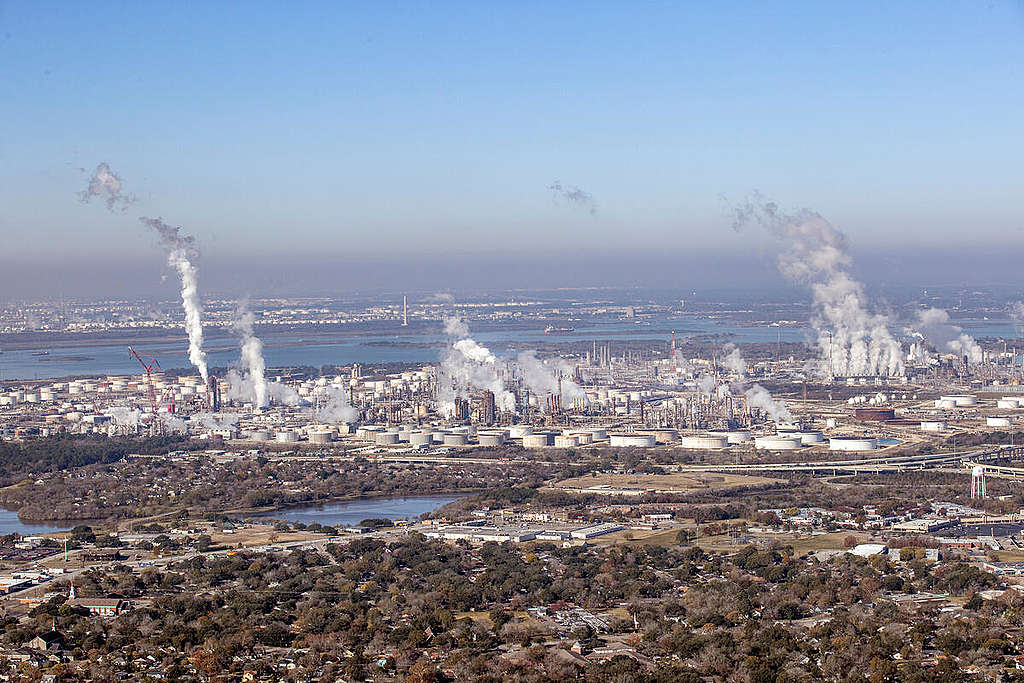
Why does it matter?
Graham: The plastic pollution crisis harms people and this planet. The effects of plastic in our environment on wildlife, livelihoods and local economies, food systems and culture connected to nature are increasingly known. But lesser known impacts of plastic, such as those related to climate, human health and on communities living near plastic production facilities, have equal or greater consequences.
Despite the vast challenges ahead, there is reason to be optimistic about the future. It is clear that the climate and plastic crises are systemic failures that require a systems change. And for the first time, we are beginning to better understand the intersection between these two crises and the companies responsible.
This knowledge is power and enables a new perspective where we can see the intersections between these issues step back and reimagine the system more broadly. Taking a more systemic approach is instructive and empowers us to stop having the wrong conversations that delay meaningful action, and begin having meaningful conversations that can move us towards the more just and sustainable models that are desperately needed.
There is maybe no better example of this type of incremental, counterproductive debate than the one being pushed by the fossil fuel industry and consumer goods sector on plastic recycling. As long as these industries continue to keep recycling at the heart of our conversations around plastic pollution, they protect that status quo by distraction. The conversation we need to be having is how we shift the system towards models of product delivery that are based on reusing finite, sustainable resources that grow local economies, empower communities and build a new kind of resilience.
And this conversation is already underway with reuse based concepts being proven by small business, adopted by people and increasingly encouraged by governments.
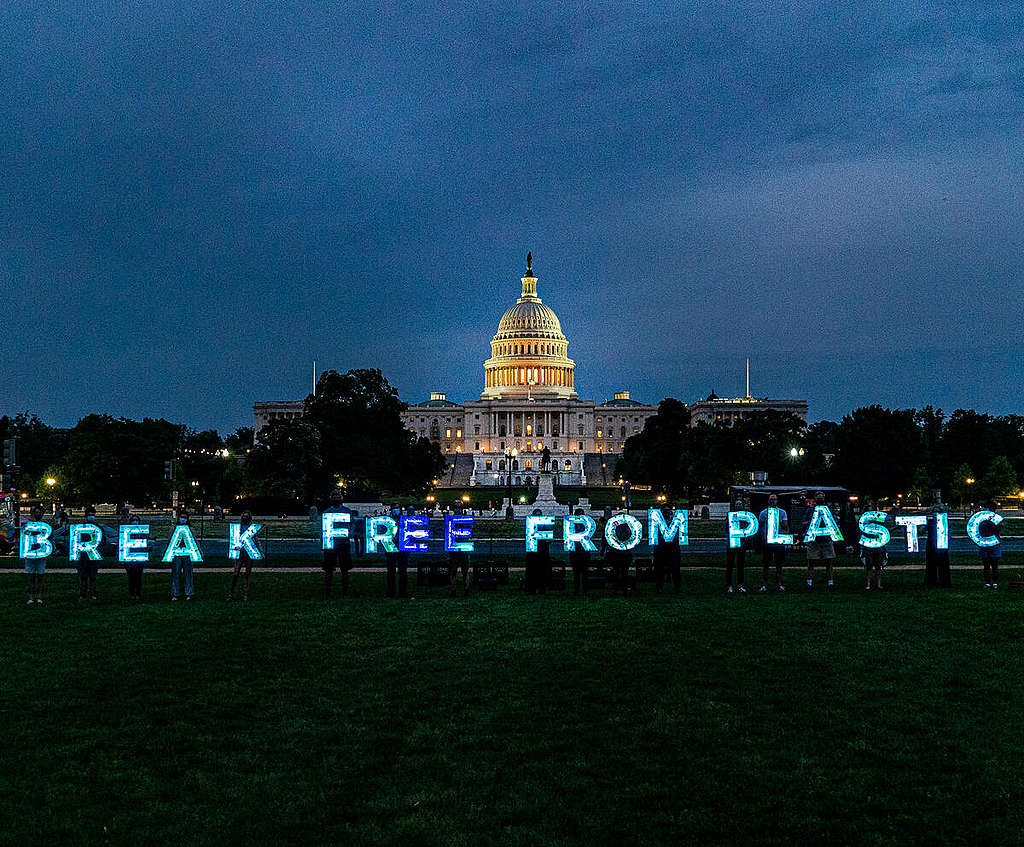
What is your community doing about it?
Marian: People, small businesses, civil society and local governments are responding with policies and solutions. Nearly 500 local governments in the Philippines have issued bans or regulations on plastic use, while Greenpeace Philippines, youth groups, and other allies call for a national plastics ban and the release of non-environmentally acceptable products including major plastic products.
To complement policies and plastic reduction, reuse systems are being implemented by small businesses and communities. They demonstrate reuse’s viability in developing nations and people’s acceptance of such models, challenging the claims of consumer goods companies.
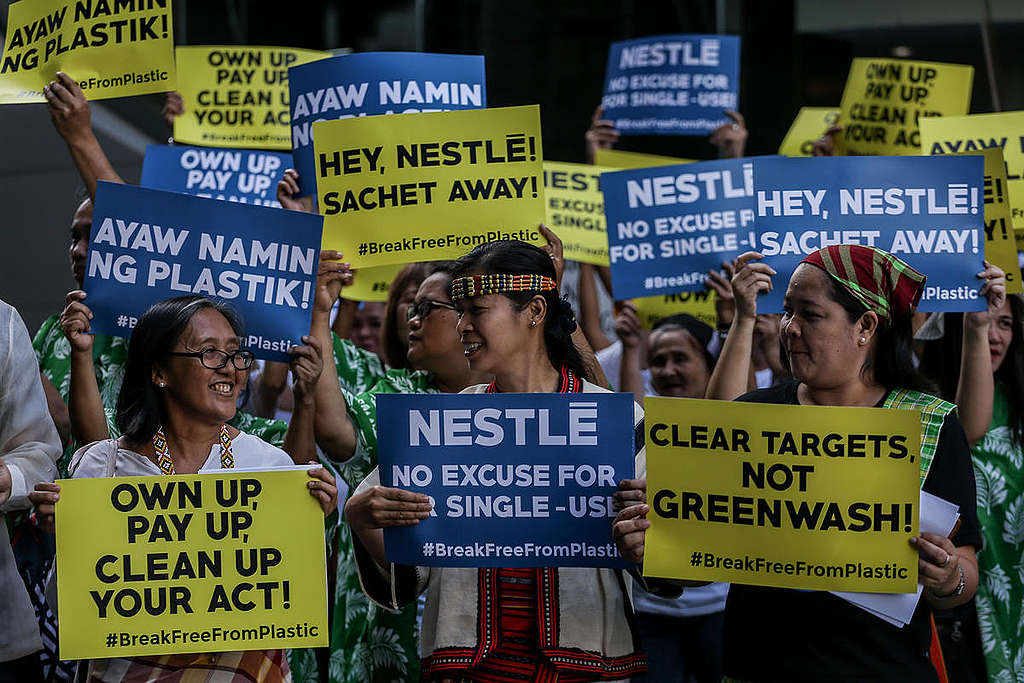
What needs to happen now?
Marian: National, regional and global policies that address the entire life cycle of plastic products need to be enacted. Southeast Asia and regions with developing economies can mandate plastic reduction, incentivize reuse and packaging-free systems, ban single-use plastic and promote slow circular economies.
Reuse and plastic reduction efforts need to be scaled up, too. Large companies can no longer be allowed to evade accountability for the climate emergency and plastic pollution created and perpetuated by their industries. They must have concrete, time-bound commitments to reduce single-use plastic production and transition to reusables. If small businesses and communities can phase out plastic and adopt reuse, multinationals have no excuse not to follow suit.
Graham: In the US, we need to immediately stop the expansion of petrochemical facilities to produce plastic and stop exporting oil and gas to make plastic. The US must fully adopt the Basel Convention and stop exporting its plastic waste abroad, pass the Break Free From Pollution Act and advocate for a strong, legally-binding global plastic treaty that addresses the entire lifecycle of plastic.
And corporations must stop their self-interested focus on recycling and help advance real conversations about shifting their business model towards reuse, including what they need from governments and people to make this happen. What might comprehensive reuse infrastructure look like in a community? How can reuse be incorporated into other efforts at the local level to reduce dependence on fossil fuels and build climate resilience? What would it look like for Coca-Cola to end its dependence on single-use plastic and become a leader in advancing new systems of reuse?
We don’t have time to keep having the wrong conversations on plastic. With a new understanding of how the entire system of plastic production and use works, we are well equipped to begin having the right conversations that put science and the public interest first.
Take action now! Demand Coke, Pepsi and Nestlé ditch single-use plastics and switch to reuse and refill solutions.
Marian Ledesma is a Zero Waste Campaigner at Greenpeace Philippines
Graham Forbes is the Global Plastic Project Lead at Greenpeace USA

